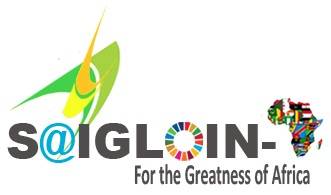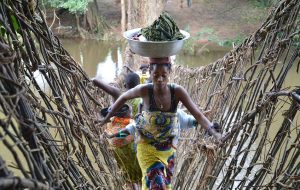
“Manon Festival”
Discovering the hidden treasures of the Mountain District
Since its creation on May 27, 2012, the NGO Ecotourisme Côte d’Ivoire (ECO-CI) has established itself as a key player in sustainable development and tourism promotion in Côte d’Ivoire. Committed to social mobilization, women’s empowerment, the fight against climate change, and the preservation of natural and cultural heritage, it is also involved in promoting agrotourism, a rapidly expanding sector.
Thanks to a meticulous inventory of the natural and cultural riches of the Montagnes District, the NGO has identified numerous exceptional sites, true gems for Ivorian and international tourism.
An Exceptional Natural and Cultural Heritage
The Montagnes District is home to unique natural and cultural wonders, ideal for an immersive and authentic experience. Among the sites listed by the NGO ECO-CI are:
Magnificent landscapes and preserved natural sites
Mount Sangbé National Park, located between Biankouma,
Touba, and Séguéla, a refuge for flora and fauna.
Mount Péko National Park, an ecological gem in the Guémon region.
Mount Nimba Strict Nature Reserve, a UNESCO World Heritage Site, shared between Côte d’Ivoire, Guinea, and Liberia.
The Zadêpleu Natural Waterfalls in Man, ideal for a refreshing getaway.
The Sacred Monkey Forest of Gbêpleu in Man, a legendary site where nature and spirituality coexist.
The sacred catfish of Dompleu and Guianlé, fish revered for their mystical qualities.
The natural caves of Dongouiné, Sogalé, and Gouakpalé, legendary caves steeped in history.
A rich and vibrant cultural heritage
The historic Sipilou Mosque and the town’s historic Catholic church bear witness to the religious and cultural melting pot.
The Douêpleu vine bridge, the longest in the region, spanning the Cavally River at 120 meters long and 50 meters high.
The Gleugoualé Rock, an impressive and symbolic rock formation.
Guélémou, the site where Almamy Samory Touré was arrested, is a site steeped in history.
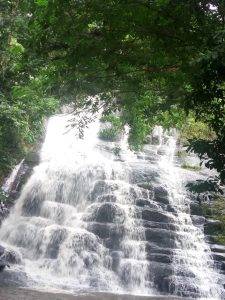
The “Manon Festival”: a showcase for agrotourism and local culture
To promote this exceptional heritage, the NGO ECO-CI organizes the Manon Festival (Festival of Agrotourism, Arts, Culture, and the Promotion of Rural Women) every year. This large gathering, which brought together more than 30,000 participants during the 7th edition, from May 10 to 12, 2024, in Logoualé, highlights the traditions, agricultural know-how and legendary hospitality of the people of the Mountain District.
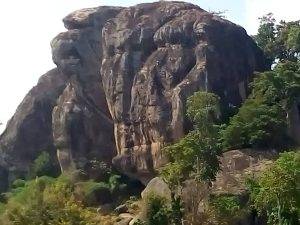
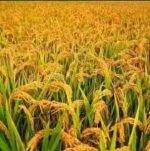
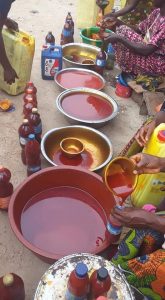
Ecotourism in Tonkpi
A new vision for tourism in Côte d’Ivoire
In a world where mass tourism increasingly threatens local ecosystems and cultures, ecotourism is emerging as a responsible and sustainable alternative. In Côte d’Ivoire, the Tonkpi region, located in the Autonomous District of Montagnes, is rich in exceptional natural and cultural resources that deserve to be protected and enhanced. The NGO Écotourisme Côte d’Ivoire (ECO-CI) is committed to this goal by promoting tourism that respects the environment and local communities.
An ambitious project for sustainable tourism
The main objective of this project is clear: to make ecotourism a lever for economic development while preserving the environment and cultural heritage of Tonkpi. Specifically, this involves:
Identifying and cataloguing all tourist sites in the region.
Raising awareness among local populations and visitors about environmental protection and respect for cultures.
Providing economic opportunities for residents through sustainable tourism activities.
Encourage authentic exchanges between tourists and local communities.
Develop appropriate ecological infrastructure for a harmonious tourist experience.
The Benefits of Ecotourism in Tonkpi
The ECO-CI initiative is based on a win-win approach:
A local economic boost: Ecotourism creates new job opportunities and encourages artisanal activities, restaurants, and eco-friendly accommodations.
Nature preservation: By promoting biodiversity and limiting human impact on ecosystems, the project promotes sustainable management of natural resources.
Cultural heritage promotion: Tonkpi, with its ancestral traditions and indigenous peoples, will be able to preserve and share its heritage with visitors while respecting its customs.
Improving infrastructure and services: The development of ecotourism involves investments in roads, accommodations, and services, thus improving the quality of life of residents.
Educational and responsible tourism: Visitors come not only to admire the beauty of the landscapes, but also to learn and get involved in positive actions for the community.
A call to action for a greener future
The ecotourism project in Tonkpi is not limited to simple tourism development. It embodies a new vision of tourism in Côte d’Ivoire, where respect for nature and local cultures is a central concern.
Every traveler, every business, and every local stakeholder has a role to play in this adventure. By choosing more responsible tourism, we contribute together to the protection of our heritage and the prosperity of future generations.
The NGO Ecotourisme Côte d’Ivoire therefore invites all stakeholders committed to greener and more humane tourism to join this initiative and make Tonkpi a leading ecotourism destination in West Africa.
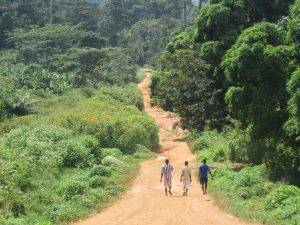
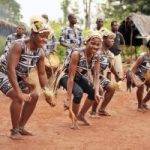
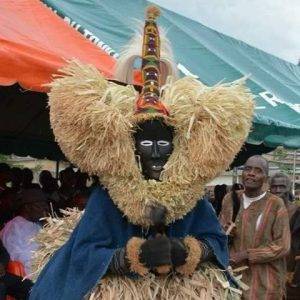
Fréderic Flan (General Commissioner) at the launch of “Manon Festival” 2025:
“Danané now becomes the official home of the “Manon Festival””
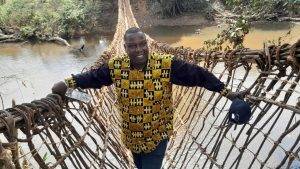
On March 7, 2025, Danané Town Hall was rocked to the rhythm of the second official launch of the 8th edition of the Manon Festival. This major cultural event, led by the NGO Ecotourisme Côte d’Ivoire, promises to be exceptional and will be held from May 9 to 12, 2025. In the presence of the Secretary General of the Danané Prefecture, Béné Kouakou Jean Louis, representing the Regional Prefect, and numerous influential figures, the ceremony marked a new era for the festival. A historic moment, Frédéric Flan, General Commissioner of the Manon Festival, announced: “Danané now becomes the official home of the Manon Festival.”
A festival under the banner of sustainable development
Sponsored by the Minister of Culture and Francophonie, Françoise Remarck, the Manon Festival 2025 aims to go beyond a mere festive occasion. This event showcases the natural, agricultural, and cultural riches of the Tonkpi region, with an ambitious program combining ecotourism, gastronomy, and ancestral traditions. The mayor of Danané, Lanciné Diabaté Kalifa, welcomed this initiative, affirming his commitment to supporting any project that promotes the empowerment of women and youth, as well as the promotion of sustainable tourism.
A general mobilization
The event brought together prominent figures, administrative and military authorities, as well as representatives of the NGO Écotourisme Côte d’Ivoire. Not to mention traditional authorities, religious leaders, and women’s cooperatives in the department, thus demonstrating the importance of the festival for the local community. In a vibrant statement, Frédéric Flan recalled the essence of the festival: “The Manon Festival is not simply a celebration, it is a call to action for sustainable, responsible, and inclusive development. We want to make our region a model of ecotourism and agrotourism, sources of employment and preservation of our natural heritage.” Danané is therefore preparing to welcome thousands of festival-goers for four days of celebration and discovery. See you from May 9 to 12, 2025, for an immersion in the heart of the Manon Festival, a symbol of the region’s dynamism and cultural renewal!
A rich and varied program
The 8th edition of the Manon Festival promises to be unforgettable, with a variety of activities:
Exhibitions and tastings to showcase local products and crafts.
Hikes and training sessions on ecotourism and sustainable agriculture.
Conferences on the challenges of climate change and local development.
Culinary competitions, celebrating the Year of Ivorian Gastronomy.
Mask races, traditional wrestling, and beauty contests highlight the rich cultural heritage of the Dan people.
Concerts and performances by traditional and modern artists.
Tree planting, symbolizing the festival’s commitment to a greener future.
